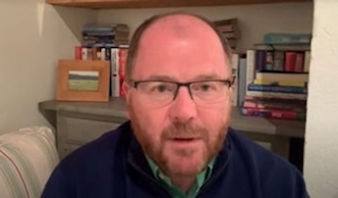
We all deserve to feel safe in our own homes – and that includes from the scourge that is flooding!
That’s why, over the years, I have spoken out on behalf of those in my constituency who have been affected by this issue – raising their cases and queries with the relevant authorities, as well as campaigning for greater recognition of the problem in planning legislation and lobbying departments to support those who have suffered as a result of flooding events.
While this is an issue that has impacted various different parts of Mid Norfolk over my time as an MP, I am aware that the Watton and Wayland area is home to some particularly bad ‘black spots’ – and that some of those have been very adversely affected over the past few weeks and months.
It is for that reason that I have been in regular contact with the Watton Neighbourhood Plan Drainage Working Group – who work tirelessly to represent affected businesses and residents, and provide vital local knowledge to those at Norfolk County Council’s Flooding Department, the Environment Agency, Anglian Water and others who are responsible for developing proper mitigation plans aimed at preventing further flooding in future.
I am pleased to report that the Watton Neighbourhood Plan Drainage Working Group are part of the National Flooding Forum organisation and have therefore been contributing to it submission to the Government’s ‘Planning for the Future’ consultation.
In support of the Working Group, I yesterday sent the NFF’s submission directly to the Secretary of State himself too – and highlighted how existing communities like Watton, Carbrooke and Saham Toney (along with any future developments in the years to come) deserve better protections.
The planning system is the first place those protections should be, and that’s why I emphasised the need for greater importance to be given to the issues of surface and drainage water flooding going forward.
If YOU have been adversely affected by flooding this year, please do get in touch. The more information groups like the Drainage Working Group and local authorities have, the better chance we have of developing the mitigation plans required to prevent such problems in the months and years to come.
